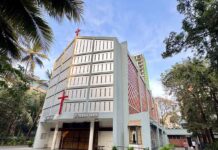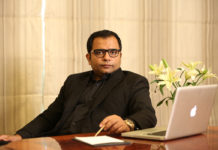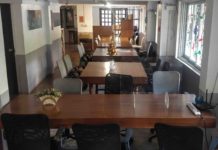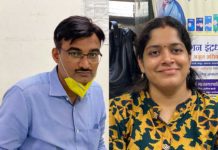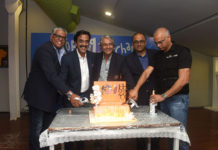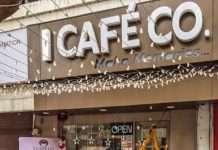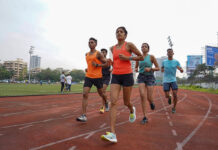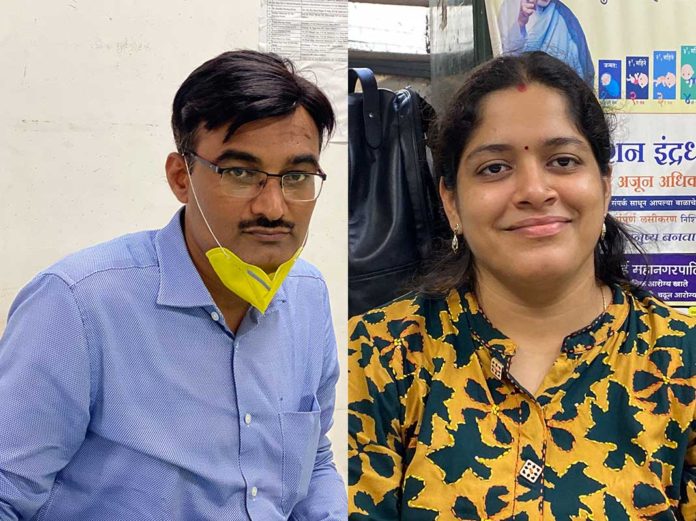
The first case of COVID-19 in India was reported on 30/01/2020. Since then, the country has reported over 1,155,191 cases, with 724,578 recoveries and 28,084 deaths as of July 21.
India has seen a series of record spikes recently, adding tens of thousands of cases daily. It recorded most of its confirmed cases in June, within weeks of reopening after a rigid lockdown. Mumbai had a total of 102,267 positive cases with a total of 23,865 active cases. H-West reported 2651 positive cases with 161 deaths and 786 active cases.
But what do all these numbers mean for you and me? What happens if you or a family member gets infected? What has changed in Mumbai since June 8 and are the new measures working?
We met Dr Sanjay Funde, Medical Officer of Health, H-West as well as the Assistant Medical Officer (AMO Surveillance), Dr Neeta Shukla who is overseeing Bandra (West)’s COVID-19 response cell to get an overview of how the neighborhood is faring in its response readiness.
Quarantine protocol
“Everyday by late afternoon, we get a line list from the Epid Cell of the BMC. It is a list of cases segregated ward-wise. So as soon as we get our list, we upload it on our local H-West app (each ward has the same app but its data is populated at individual ward level). And from there, the cases are further segregated locality wise and then we start processing this information,” informs Dr Shukla.
Earlier, the entire society would be quarantined if a patient tested positive for Covid-19. But now with the revised protocol issued on May 18, only the particular floor where the patient lives is sealed. The civic body further disinfects the wing or floors of the Covid-19 patient’s residence once it is sealed. It then hands over the area to the housing society’s office bearers, and they have to further ensure that containment zone rules are followed on the floor or wing.
Positive asymptomatic patients or patients with mild symptoms can be quarantined at home according to the government’s guidelines. However, this is possible only if adequate facilities including separate toilets for high-risk contacts of the positive case are available at home, along with a self-declaration from the patient. “The ward medical officers monitor each case and will constantly call the patient/relative for updates on their condition,” Dr Funde assured.
For cases where home isolation is not possible for example, in slum pockets where a separate room or toilet is not feasible, the patient is shifted to the nearest government isolation facility such as the one at BKC.
Dr Neeta added that symptomatic patients should be moved to a Dedicated Covid Health Centre or Dedicated Covid Hospital, either at a private hospital or a government facility based on affordability. The private Dedicated COVID Hospitals (DCH) in H-West are Lilavati and Holy Family. Bhabha Hospital, and Shanti Nursing Home and Bhabha Hospital are Dedicated Covid Health Centres (DCHCs).
“The protocol is very different to what the patients and their families are actually following. This is very disturbing and harmful. We had a case yesterday where the patient just refused to get into an ambulance. He was aged, and scared and was being stubborn. Protocol says, that if on inspection a patient’s facility is not found adequate, they have to transfer to a government facility. But most people refuse to abide by that and then it becomes a very stressful situation for all concerned where we then have to call the police and they take up the matter,” informed Dr Shukla.
According to her, if an individual has a fever or any of the other COVID symptoms and gets a test done by an independent lab, the report will be sent to the EPID cell of MCGM within 24 hours. In the meanwhile, “The patient can directly go to the nearest COVID hospital and they will admit you as a suspected COVID case. There are separate suspected wards in all hospitals and also at the BKC jumbo facility,” says Dr Shukla.
“Most patients refuse to go to the hospital until they reach a very critical state. And then, when treatment becomes difficult they feel that the doctors and hospital staff are to blame, lack of facilities is to blame. Fact is, we have adequate facilities, we have well trained and dedicated staff who are doing the best they can with each patient that comes in. The crucial thing here is that patients and families need to understand that they should not wait until they reach a critical state to seek help,” added Dr Shukla. “If you are asymptomatic or have mild symptoms and have no co-morbidities or are relatively young, you can opt for home quarantine. But if you are aged and have underlying conditions such as asthma, diabetes etc. it is your responsibility to get yourself admitted to the nearest hospital. We can’t and should not have to come to your house and drag you to a medical facility. Unfortunately this is what is happening today more than we’d like to see,” she says.
Testing and hospitalisation
As of July 7, the BMC issued updated guidelines wherein it stated that no prescription or self-declaration is required for COVID testing for symptomatic or asymptomatic individuals. Testing is done for free in the public health utilities while the Maharashtra government has fixed testing rates for private laboratories. The tests are for ₹2,200 if the person goes to the lab to give a sample or ₹2,800 if the laboratory collects the samples from home. Laboratory chains such as Metropolis, Thyrocare, Suburban Diagnostics, Krshnaa Diagnostics, SRL Diagnostics, NM Medicare as well as many private hospitals are conducting COVID-19 testing in Mumbai. The results are issued a day after the samples are collected. This came into effect after Iqbal Singh Chahal, the Municipal Commissioner issued strict orders to labs to provide results in 24 hours as many of the labs were earlier delaying results.
The BMC has also mandated that all labs have to first send the patient reports to the MCGM and the civic body shall further intimate the patients. The actual report of the positive case can be shared by the laboratory with the patient directly only after 11 am on the subsequent after the report has been sent to the BMC. “This step is necessary because we found that many patients on receiving their reports, panic and run away from their homes and switch off their phones. It is then very difficult to trace them and by then the infection has spread to a larger population. By intimating patients ourselves, we calm them down and offer support and advice and it has helped control the situation,” says Dr Shukla.
As of June 11, the BMC started decentralized Covid-19 war rooms for all the 24 wards. These war rooms have been designed to assist citizens through symptoms, testing, as well as hospitalization for Covid-19. Furthermore, the BMC under the guidelines of the Maharashtra government took over 80% beds in the private hospitals wherein admission to those beds is under the BMC’s control. If a bed is allotted and chosen through the ward helpline, it falls under this 80% quota.
In H-West, as per data available on July 21, there were a total of 361 beds available across its 4 hospitals of which 103 beds were available. There were only 5 ICU beds available from a total of 60 beds. However, elsewhere across the city, from a total of 1687 ICU beds, there were 191 available of which 104 were equipped with ventilators. The BMC has a total of 16,081 available beds in hospitals across the city, and as of July 21 there were 6990 beds available. The jumbo facility at BKC has a total of 1026 beds with 738 available as on July 21. Of the 90 ventilated ICU beds here, 78 were available. “All of these figures are live and are updated every 12 hours. We are more than capable of ensuring that we treat every COVID positive case with the best resources we have available,” assured Dr Shukla.
As per state government rules private hospitals charge ₹4000 per day for routine and isolation wards, ₹7500 per day for ICU without ventilator, and ₹9000 per day for ICU with ventilator. These charges include routine pathological tests, regular drugs, bed charges, consultations, and meals. These charges do not include PPEs, interventional procedures, COVID testing as per the fixed rates of ₹2,200, high-end drugs like immunoglobulins at 10% markup from market price and high-end investigations like CT scans and MRI scans. The control (war) room number for H-West is 022-26440121.


